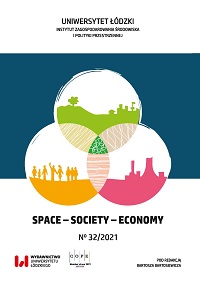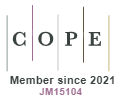Projekty biznesowe w mieście – specyfika i rozwój narzędzi wspierających
DOI:
https://doi.org/10.18778/1733-3180.32.04Słowa kluczowe:
projekty, projekty biznesowe, narzędzia wspierające, miastoAbstrakt
Gospodarowanie miastem jest kształtowane poprzez aktywność zarówno sektora publicznego, jak i prywatnego. Wspólna aktywność umożliwia osiąganie efektów niemożliwych do uzyskania wyłącznie przez działalność sektora publicznego. Z kolei działania sektora prywatnego mogą nie nastąpić lub być ograniczone bez wsparcia sektora publicznego.
Z uwagi na podjętą problematykę badawczą głównym celem badania jest scharakteryzowanie projektów, w tym biznesowych oraz określenie wachlarza potencjalnych sposobów wspierania projektów biznesowych (odpowiadających ich specyfice) ze strony sektora publicznego.
Na podstawie przeprowadzonych badań autor stwierdza głównie, że zdolność do pełnienia przez projekty biznesowe miastotwórczej roli wpływa na dysponowanie przez sektor publiczny narzędziami je wspierającymi. W zakresie tych rozwiązań wsparcia dostrzega się przy części uniwersalność (tj. szeroką adaptacyjność), a przy innych raczej indywidualność (tj. spełnienie konkretnych wymogów). Ponadto, wymienia się narzędzia o charakterze finansowym, jak i pozafinansowym. Co więcej, zagraniczne doświadczenia wskazują przykładowe kierunki ich rozwoju.
Pobrania
Bibliografia
A Guide to The Project Management Body of Knowledge, 2000, Project Management Institute.
Google Scholar
Adamczyk K., 2012, Fundusze typu Real Estate Investment Trust brakującym ogniwem rynku finansowania nieruchomości w Polsce, „Studia i Prace Kolegium Zarządzania i Finansów, Zeszyt Naukowy”, 153, Szkoła Główna Handlowa w Warszawie: 103–120.
Google Scholar
Analiza obejmująca polityki oraz instrumenty wsparcia wobec instytucji otoczenia biznesu wspierających innowacyjność przedsiębiorstw w wybranych krajach, 2019, Ministerstwo Rozwoju.
Google Scholar
Barrett D.C., 2018, Understanding Project Management. A Practical Guide, Canadian Scholars.
Google Scholar
Brandenburg H., 2002, Zarządzanie projektami, Wydawnictwo Akademii Ekonomicznej w Katowicach.
Google Scholar
Brocka-Palacz B., 2014, Wspieranie małych i średnich przedsiębiorstw w Niemczech, „Zeszyty Naukowe Uczelni Vistula”, 35: 177–191.
Google Scholar
Bryx M., Matkowski R., 2001, Inwestycje w nieruchomości, Poltext.
Google Scholar
Cleland D.I., Ireland L.R., 2006, The Evolution of Project Management, [w:] D.I. Cleland, L.R. Ireland (eds.), Global Project Management Handbook. Planning, Organizing and Controlling International Projects, Mc Gwar-Hill: 3–19.
Google Scholar
Czerkas K., 2010, Finansowanie nieruchomości komercyjnych w Polsce, Instytut Rynku Hotelarskiego.
Google Scholar
Czyżewska D., 2013, Wspieranie działalności innowacyjnej w regionie Rodan-Alpy, „Acta Universitatis Lodziensis. Folia Oeconomica”, 290: 117–133.
Google Scholar
Drobniak A., 2005, Ocena projektów publicznych, Prace Naukowe Uniwersytetu Ekonomicznego w Katowicach.
Google Scholar
Dropek K., 2014, Działania samorządu terytorialnego wspierające przedsiębiorczość w gminach województwa wielkopolskiego, „Studia Oeconomica Posnaniensia”, 2(2): 36–54.
Google Scholar
Dziemianowicz W., Mackiewicz M., Malinowska E., Misiąg W., Tomalak M., 2000, Wspieranie przedsiębiorczości przez samorząd terytorialny, Polska Fundacja Promocji i Rozwoju Małych i Średnich Przedsiębiorstw.
Google Scholar
Filipiak B., Ruszała J., 2009, Instytucje otoczenia biznesu. Rozwój, wsparcie, instrumenty, Difin, Warszawa.
Google Scholar
Firek A.M., 2017, Real Estate Crowdfunding – Tłum jako alternatywne źródło finansowania nieruchomości, „Rynek – Społeczeństwo – Kultura”, 3(24): 44–51.
Google Scholar
Flieger M., 2009, Ocena gminnych instrumentów wspierania przedsiębiorczości, „Ruch Prawniczy, Ekonomiczny i Socjologiczny”, 71(1): 147–167.
Google Scholar
Foltyn-Zarychta M., 2011, Kryterium efektywności inwestycji generujących oddziaływania pozarynkowe w świetle teoretycznych możliwości stosowania metod oceny projektów, [w:] K. Marcinek (red.), Inwestycje i nieruchomości. Wybrane zagadnienia, Uniwersytet Ekonomiczny w Katowicach: 83–99.
Google Scholar
Foryś I., Górski M., 2016, Bariery rozwoju leasingu nieruchomości w Polsce na tle doświadczeń zagranicznych, „Studia i Prace Wydziału Nauk Ekonomicznych i Zarządzania”, 45(1): 77–89, Uniwersytet Szczeciński.
Google Scholar
DOI: https://doi.org/10.18276/sip.2016.45/1-06
Frame J.D., 2001, Zarządzanie projektami w organizacjach, WIG-Press, Warszawa.
Google Scholar
Gancarczyk M., 2010, System wsparcia dla przedsiębiorców – doświadczenia brytyjskie, „Gospodarka Narodowa”, 5–6: 41–60.
Google Scholar
DOI: https://doi.org/10.33119/GN/101154
Gido J., Clements J.P., 2014, Successful Project Management, Cengage Learning.
Google Scholar
Gostkowska-Drzewicka M., 2014, Obligacje w strukturze kapitału przedsiębiorstw deweloperskich notowanych na GPW, „Zeszyty Naukowe Uniwersytetu Szczecińskiego Finanse, Rynki Finansowe, Ubezpieczenia”, 65: 801–814.
Google Scholar
Gostkowska-Drzewicka M., 2016, Crowdfunding jako źródło finansowania inwestycji w nieruchomości, „Zeszyty Naukowe Uniwersytetu Szczecińskiego, Finanse, Rynki Finansowe, Ubezpieczenia”, 1(79): 57–71.
Google Scholar
DOI: https://doi.org/10.18276/frfu.2016.79-04
Gwizdała J., 2012, Leasing jako alternatywne źródło finansowania inwestycji w nieruchomości, „Zarządzanie i Finanse”, 10(1/1): 327–335.
Google Scholar
Jania A., 2019, Finansowanie projektów sektora biznesu na terenach poprzemysłowych w mieście w kontekście rozwoju lokalnego, [w:] E. Gruszewska, M. Roszkowska (red.), Współczesne problemy ekonomiczne w badaniach młodych naukowców, t. 3, Polskie Towarzystwo Ekonomiczne: 88–97.
Google Scholar
DOI: https://doi.org/10.15290/wpewbmn3.2019.07
Karlsen J.T., 2002, Project Stakeholder Management, „Engineering Management Journal”, 14(4): 19–24.
Google Scholar
DOI: https://doi.org/10.1080/10429247.2002.11415180
Kerzner H., 2003, Project Management. A System Approach to Planning, Scheduling and Controlling, John Wiley & Sons, Inc.
Google Scholar
Kimmons R.L., 1990, Project Management Basics. A Step by Step Approach, Marcel Dekker.
Google Scholar
DOI: https://doi.org/10.1201/9781482276992
Kloppenborg T.J., 2012, Contemporary Project Management, South-Western Cengage Learning.
Google Scholar
Kobus-Ostrowska D., 2006, Ekonomiczne narzędzia wspierania przedsiębiorczości przez samorząd terytorialny, „Acta Universitatis Lodziensis. Folia Oeconomica”, 201: 185-193.
Google Scholar
Kordela D., 2017, Crowdfunding nieruchomości przykładem rozwoju finansowania społecznościowego, „Prace Naukowe Uniwersytetu Ekonomicznego we Wrocławiu”, 478: 248–258.
Google Scholar
DOI: https://doi.org/10.15611/pn.2017.478.23
Köster K., 2010, International Project Management, SAGE Publications.
Google Scholar
DOI: https://doi.org/10.4135/9781446269596
Kucharska-Stasiak E., 2016, Ekonomiczny wymiar nieruchomości, Wydawnictwo Naukowe PWN.
Google Scholar
Kwieciński L., 2018, Polskie parki technologiczne – w stronę IV generacji parków technologicznych. Wstępne wyniki badań terenowych, „Zarządzanie Publiczne”, 1(43): 38–53.
Google Scholar
DOI: https://doi.org/10.15678/ZP.2018.43.1.03
Leśniak-Łebkowska G., 2015, Project Management, Warsaw School of Economics.
Google Scholar
Lock D., 2007, Project Management, Gower.
Google Scholar
Maciejuk M., 2004, Lokalne instrumentarium wspierania przedsiębiorczości – studium przypadków, [w:] A. Jewtuchowicz (red.), Wiedza, innowacyjność, przedsiębiorczość a rozwój regionów, Wydawnictwo Uniwersytetu Łódzkiego: 403–414.
Google Scholar
Makowiec M., 2012, Innowacyjność przedsiębiorstw typu spin-off i spin-out na przykładzie wybranych organizacji, Zeszyty Naukowe Uniwersytetu Szczecińskiego, nr 736, „Finanse, Rynki Finansowe, Ubezpieczenia”, 55: 101–128.
Google Scholar
Maltzman R., Shirley D., 2011, Green Project Management, CRC Press.
Google Scholar
DOI: https://doi.org/10.1201/EBK1439830017
Marcinek K., 2001, Ryzyko projektów inwestycyjnych, Akademia Ekonomiczna im. Karola Adamieckiego, Katowice.
Google Scholar
Matusiak K.B., Mażewska M., Banisch R., 2011, Budowa Skutecznego Otoczenia Innowacyjnego Biznesu w Polsce, PARP.
Google Scholar
Maylor H., 2010, Project Management, Prentice Hall, Pearson.
Google Scholar
Mazur J., Systemowe wsparcie dla cyfryzacji gospodarki. Przykład Niemiec, Digital Economy Lab, Uniwersytet Warszawski.
Google Scholar
Meredith J.R., Mantel S.J. Jr., 2009, Project Management. A Managerial Approach, John Wiley & Sons.
Google Scholar
Michna A., Męczyńska A., 2016, Lokalne innowacje społeczne wspierające rozwój i funkcjonowanie przedsiębiorczości, „Ekonomia Społeczna”, 2: 71–79.
Google Scholar
DOI: https://doi.org/10.15678/ES.2016.2.06
Mikołajczyk B., Kurczewska A., 2004, Sektor małych i średnich przedsiębiorstw we Francji, „Studia Europejskie”, 2: 73–89.
Google Scholar
Mizerka J., Surma J., 2000, Finansowa ocena projektu inwestycyjnego z wykorzystaniem opcji rzeczywistych. Studium przypadku, „Ruch Prawniczy, Ekonomiczny i Socjologiczny”, 62(1): 139–153.
Google Scholar
Morris P.W.G., 1994, The Management of Projects, Thomas Telford Services.
Google Scholar
Munns A.K., Bjeirmi B.F., 1996, The Role of Project Management in Achieving Project Success, „International Journal of Protect Management”, 14(2): 81–87.
Google Scholar
DOI: https://doi.org/10.1016/0263-7863(95)00057-7
Nagarajan K., 2004, Project Management, New Age International Publishers.
Google Scholar
Nicholas J.M., 2004, Project Management for Business and Engineering, Elsevier.
Google Scholar
Okręglicka M., 2014, Leasing jako usługa finansowa na rynku nieruchomości w Polsce, [w:] B. Iwankiewicz-Rak, B. Mróz-Gorgoń (red.), Usługi 2014, Branżowe i menedżerskie aspekty rozwoju usług, Prace Naukowe Uniwersytetu Ekonomicznego we Wrocławiu, nr 355: 308–317.
Google Scholar
DOI: https://doi.org/10.15611/pn.2014.355.28
Oleksiuk A., 2009, Konkurencyjność regionów a parki technologiczne i klastry przemysłowe, Oficyna Wydawnicza Branta.
Google Scholar
Oleksy P., 2009, Buy-back na rynku nieruchomości – zarys problematyki, „Świat Nieruchomości”, 2(68): 46–51.
Google Scholar
Pawlak M., 2006, Zarządzanie projektami, Wydawnictwo Naukowe PWN.
Google Scholar
Rębilas R., 2012, Inwestycje jako warunek przetrwania i rozwoju przedsiębiorstwa, [w:] R.N. Hanisz (red.), Inwestycje przedsiębiorstw i źródła ich finansowania. Teoria i praktyka, Wyższa Szkoła Biznesu w Dąbrowie Górniczej: 25–42.
Google Scholar
Rogowski W., 2008, Rachunek efektywności inwestycji, Oficyna a Wolters Kluwer Business.
Google Scholar
Rosenau Jr. M.D., Githens G.D., 2005, Successful Project Management, A Step-by-Step Approach with Practical Examples, John Wiley & Sons, Inc.
Google Scholar
Różański J., 2020, Innowacyjność polskich przedsiębiorstw na tle europejskich systemów innowacyjności, „Przegląd Organizacji”, 9(968): 19–26.
Google Scholar
DOI: https://doi.org/10.33141/po.2020.09.03
Schwalbe K., 2009, An Introduction to Project Management, Course Technology, Cengage Learning.
Google Scholar
Siemińska E., 2011, Rynek nieruchomości jako miejsce lokowania kapitału, [w:] E. Siemińska (red.), Inwestowanie na rynku nieruchomości, Poltext: 13–46.
Google Scholar
Skica T., Bem A., 2014, Rola samorządu terytorialnego w procesach stymulowania przedsiębiorczości, „Studia Regionalne i Lokalne”, 1(55): 79–92.
Google Scholar
Szot-Gabryś T., 2011, Projekty inwestycyjne infrastrukturalne i biznesowe, Difin.
Google Scholar
Śmietana K., 2014, Idea odpowiedzialnych inwestycji w nieruchomości w działalności deweloperskiej, „Journal of Management and Finance”, 12(4): 421–436.
Google Scholar
Tomecki M., 2013, Bariery zastosowania metody project finance w finansowaniu nieruchomości mieszkaniowych na wynajem w świetle obowiązującego w Polsce stanu prawnego, „Studia Ekonomiczne”, Wydawnictwo Uniwersytetu Ekonomicznego w Katowicach, 155: 137–149.
Google Scholar
Trocki M., 2012, Projekty i pojęcia pokrewne, [w:] M. Trocki (red.), Nowoczesne zarządzanie projektami, Polskie Wydawnictwo Ekonomiczne: 19–28.
Google Scholar
Ustawa z dnia 20 marca 2002 r. o finansowym wspieraniu inwestycji (Dz.U. 2002, nr 41, poz. 363 z późn. zm.).
Google Scholar
Vogel J.H. Jr., Moll B.S., 2014, Crowdfunding for Real Estate, „The Real Estate Finance Journal”, Summer/Fall: 5–16.
Google Scholar
Whitman I.L., 2006, Brownfield Redevelopment by The Private Sector: Market Driven Decision Making, WIT Transactions on Ecology and The Environment, 9: 21–27.
Google Scholar
DOI: https://doi.org/10.2495/BF060031
Wilczek M.T., 2002, Podstawy zarządzania projektem inwestycyjnym, Wydawnictwo Akademii Ekonomicznej w Katowicach.
Google Scholar
Wiśniewska J., 2008, Podstawowe problemy związane z inwestycjami w nieruchomości, „Studia i Prace Wydziału Nauk Ekonomicznych i Zarządzania”, Uniwersytet Szczeciński, 1: 81–92.
Google Scholar
Wojewnik-Filipkowska A., 2008, Project finance w finansowaniu inwestycji w nieruchomości: zalety i wady spółki celowej, „Świat Nieruchomości”, 66: 10–15.
Google Scholar
Wołowiec T., 2005, Finansowe instrumenty wspierania przedsiębiorczości przez gminy, „Studia Regionalne i Lokalne”, 1(19): 65–82.
Google Scholar
Żarnik-Żuławska J., 2012, Wybrane instrumenty rządowe wspierające innowacyjność MŚP we Francji, „Acta Universitatis Nicolai Copernici. Zarządzanie”, 39(407):133–152.
Google Scholar
DOI: https://doi.org/10.12775/AUNC_ZARZ.2012.010
www1: https://www.funduszeeuropejskie.gov.pl/strony/o-funduszach/fundusze-na-lata-2021–2027/dowiedz-sie-wiecej-o-funduszach-europejskich-na-lata-2021–2027/ (dostęp: 29.05.2021).
Google Scholar
www2: https://thenextweb.com/eu/2017/05/24/how-germany-is-uniting-its-tech-hubs-to-build-its-own-silicon-valley/ (dostęp: 24.09.2021).
Google Scholar
www3: https://www.enseignementsup-recherche.gouv.fr/cid5739/les-incubateurs-d-entreprises-innovantes-lies-a-la-recherche-publique.html (dostęp: 25.09.2021).
Google Scholar
www4: https://www.gov.uk/guidance/university-and-business-collaboration-agreements-lambert-toolkit (dostęp: 25.09.2021).
Google Scholar
Opublikowane
Jak cytować
Numer
Dział
Licencja

Utwór dostępny jest na licencji Creative Commons Uznanie autorstwa – Użycie niekomercyjne – Bez utworów zależnych 4.0 Międzynarodowe.









